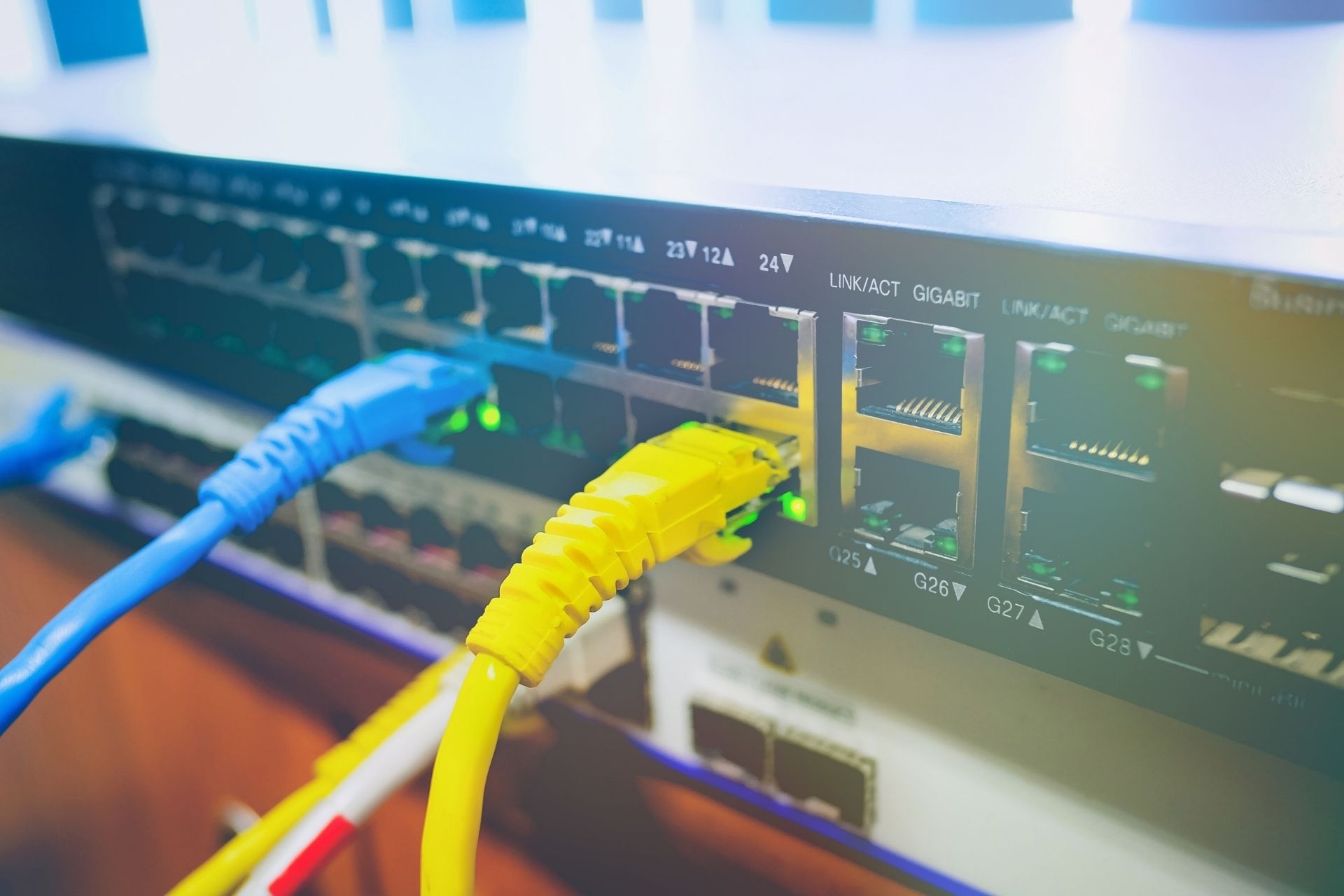

Internet Cache Protocol (ICP) improves web performance by reducing latency through the use of hierarchical caching systems. By allowing cache servers to communicate with each other and share information about cached content, ICP enables a more efficient retrieval of data. When a user requests a webpage, the nearest cache server can respond with the cached content instead of fetching it from the origin server, thus reducing the time it takes to load the page.
In content delivery networks (CDNs), ICP plays a crucial role in optimizing content delivery by enabling cache servers to collaborate and share cached data. This allows for faster access to content for users, as the content can be served from the nearest cache server rather than the origin server. By reducing the distance data needs to travel, ICP helps improve the overall performance of CDNs and enhances the user experience.
THE MOST IMPORTANT UTILITY™ Dojo Networks provides THE MOST IMPORTANT UTILITY™ service: Reliable high-speed internet access. Internet service is touched by your residents more than their lights, hot water, or heat/AC. MDU owners and property managers agree that residents place a high priority on high-speed internet service and according to a survey by Entrata, a “basic technology package” that includes internet access tops the list of amenities for which residents are willing to pay a premium.

Posted by on 2023-05-19
Multi Dwelling Unit (MDU) Property Owners have been besieged over the past 30 years by cable and telecom companies offering to provide television and high-speed internet services through contracts that vary from simple Right of Entry (ROE) to complicated Installation & Service Agreements. Today, the complexity of these contracts continues to be great, and property owners should use caution and seek professional advice before signing any new or renewal agreements.

Posted by on 2023-05-03
Touched by your residents more than their lights or hot water, the Internet has become a required utility, and managed WiFi is the perfect way to deliver the utility to your tenants. Tenants believe that the Internet should just work—no questions asked, no matter where they are in your building or on your property. You want happy tenants, and you recognize the competitive advantage and potential income that managed WiFi offers. You also know that installing managed WiFi can require a substantial capital investment, so you need to do it right the first time, with a vendor you can trust and rely on. But how do you find the best vendor? What should you require, and what questions should you ask?

Posted by on 2023-04-27
Do you know what you are putting your residents through? by Joe Geroux I have been in the telecommunications Industry for over 30 years! Recently my sister moved from Naples, FL to Nashville, TN and trying to help my big sister get set up in her new apartment was one task I took on as her little brother!

Posted by on 2023-01-19
ICP handles cache invalidation by implementing mechanisms to ensure that users receive the most up-to-date content. When content is updated or changed on the origin server, cache servers communicate with each other to invalidate outdated content and fetch the latest version. This process helps maintain the freshness of cached content and ensures that users always access the most recent information.

The key differences between ICP and other caching protocols like HTTP caching lie in their approach to cache management and coordination. While HTTP caching relies on directives in HTTP headers to control caching behavior, ICP uses a peer-to-peer communication protocol to facilitate cache coordination between servers. This allows for more efficient sharing of cached content and better optimization of web performance.
ICP facilitates load balancing and improves server efficiency in distributed systems by distributing requests among cache servers based on their proximity to the user. By directing requests to the nearest cache server, ICP helps reduce the load on origin servers and improves response times for users. This load balancing mechanism ensures a more even distribution of traffic and enhances the overall performance of the system.

To protect against unauthorized access to cached content, ICP implements security measures such as access control mechanisms and encryption protocols. By restricting access to cached data based on user permissions and ensuring data integrity through encryption, ICP helps safeguard sensitive information stored in caches. These security measures help prevent unauthorized users from accessing or tampering with cached content.
ICP handles cache coordination and synchronization between multiple cache servers in a network by using a distributed architecture and communication protocol. Cache servers communicate with each other to share information about cached content, update their caches, and coordinate cache invalidation. This synchronization process ensures that all cache servers in the network have consistent and up-to-date content, improving the overall efficiency and performance of the caching system.

TCP congestion control in bulk internet technologies is optimized through various mechanisms such as slow start, congestion avoidance, fast retransmit, and fast recovery. These algorithms work together to regulate the flow of data packets, ensuring efficient utilization of network resources and preventing network congestion. Additionally, technologies like Explicit Congestion Notification (ECN) and Random Early Detection (RED) are employed to provide feedback to the sender about network congestion levels, allowing for proactive adjustments in data transmission rates. By dynamically adjusting the window size and retransmission behavior based on network conditions, TCP congestion control in bulk internet technologies can effectively manage traffic flow and maintain optimal performance levels. Other optimizations include the use of algorithms like TCP Vegas, Compound TCP, and TCP Cubic, which further enhance the congestion control mechanisms to accommodate varying network conditions and traffic patterns. Overall, these optimizations play a crucial role in ensuring reliable and efficient data transmission in bulk internet technologies.
Various tools are available for network monitoring and analysis in bulk internet technologies, including Wireshark, SolarWinds Network Performance Monitor, Nagios, PRTG Network Monitor, and Zabbix. These tools allow network administrators to monitor network traffic, analyze performance metrics, detect anomalies, and troubleshoot issues in real-time. Additionally, they provide detailed reports, alerts, and visualizations to help optimize network performance and ensure smooth operation. By utilizing these tools, organizations can proactively manage their networks, identify potential security threats, and improve overall network efficiency.
Web acceleration in bulk internet technologies utilizes various techniques to improve loading speeds and overall performance. Some common methods include content delivery networks (CDNs), caching, image optimization, minification of code, lazy loading, prefetching, and server-side optimizations. CDNs help distribute content across multiple servers geographically closer to users, reducing latency. Caching stores frequently accessed data locally to reduce the need for repeated requests to the server. Image optimization involves compressing images without compromising quality to decrease file sizes. Minification of code removes unnecessary characters and spaces to reduce file sizes and improve load times. Lazy loading delays the loading of non-essential content until it is needed, while prefetching anticipates user actions to load resources in advance. Server-side optimizations involve configuring servers for faster response times and efficient data processing. By implementing these techniques, web acceleration can significantly enhance the user experience and optimize website performance in bulk internet technologies.
Bulk internet technologies continuously monitor and analyze emerging internet standards and protocols to ensure seamless integration and compatibility with evolving trends. These technologies leverage advanced algorithms and machine learning capabilities to adapt to changes in protocols such as HTTP, TCP/IP, DNS, and IPv6. By staying abreast of developments in areas like cybersecurity, cloud computing, and IoT, bulk internet technologies can proactively adjust their infrastructure to meet the demands of the ever-changing digital landscape. Additionally, these technologies collaborate with industry experts, participate in standardization bodies, and conduct regular audits to guarantee compliance with the latest protocols and standards. Through these proactive measures, bulk internet technologies can effectively navigate the complexities of the evolving internet ecosystem.
DNS load balancing plays a crucial role in enhancing the reliability of bulk internet technologies by distributing incoming traffic across multiple servers based on various factors such as server health, geographic location, and server load. This ensures that no single server becomes overwhelmed with traffic, reducing the risk of downtime and improving overall performance. By utilizing techniques such as round-robin DNS, weighted round-robin, and geographic DNS, organizations can achieve high availability and fault tolerance for their internet services. Additionally, DNS load balancing allows for seamless scalability as new servers can be easily added to the pool to handle increased traffic demands. Overall, DNS load balancing is a vital component in ensuring the reliability and stability of bulk internet technologies.
VPN tunneling protocols play a crucial role in ensuring secure communication in bulk internet technologies by creating a secure and encrypted connection between the user's device and the VPN server. These protocols, such as OpenVPN, IPSec, and L2TP, establish a virtual tunnel through which data is transmitted, protecting it from potential threats such as hackers, surveillance, and data breaches. By utilizing advanced encryption algorithms and authentication methods, VPN tunneling protocols help safeguard sensitive information and ensure privacy and anonymity for users engaging in bulk internet activities. Additionally, these protocols enable users to bypass geo-restrictions and censorship, further enhancing the security and freedom of communication in the digital realm.
HTTP/2 protocol offers several advantages in bulk internet technologies. One key benefit is the ability to multiplex multiple requests and responses over a single connection, reducing latency and improving overall performance. This protocol also supports header compression, which helps in reducing the amount of data transmitted between the client and server. Additionally, HTTP/2 allows for server push, enabling servers to proactively send resources to clients before they are requested, further enhancing speed and efficiency. Overall, the advanced features of HTTP/2 make it a valuable tool for optimizing bulk internet technologies and improving the user experience.